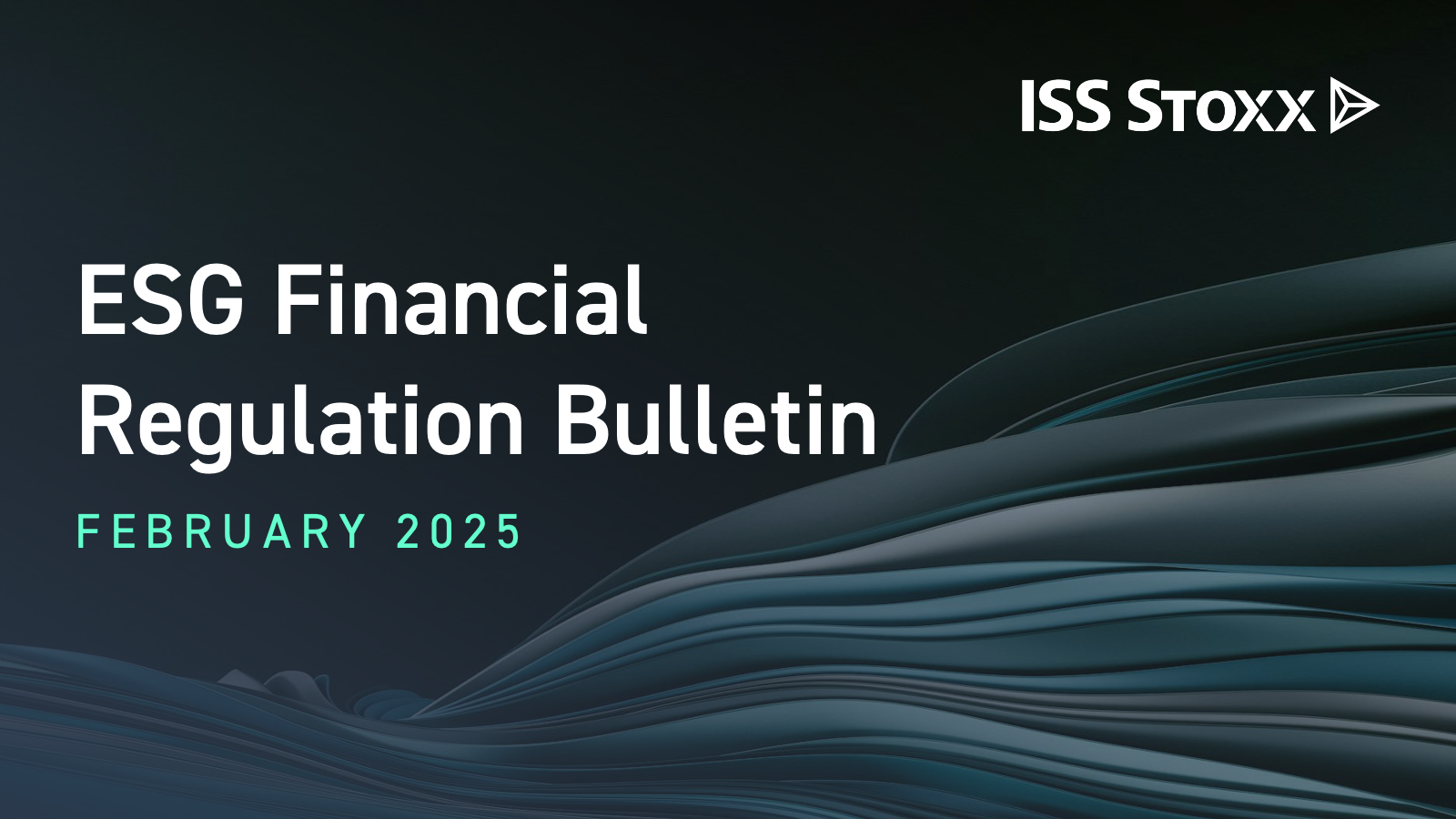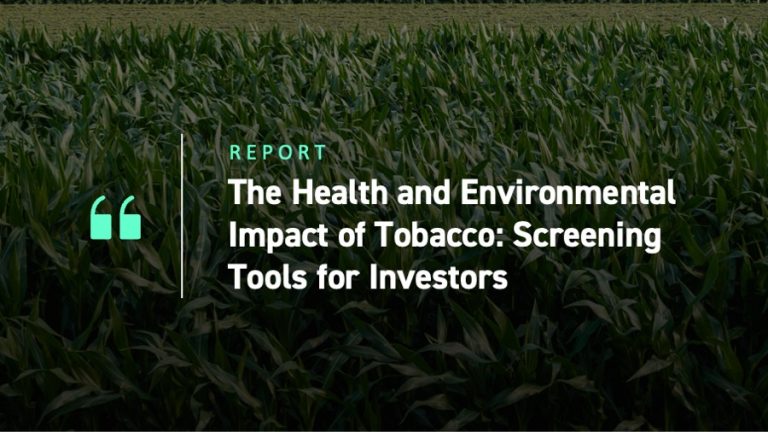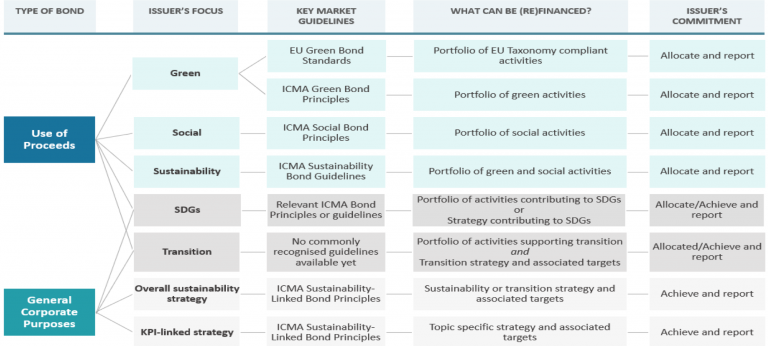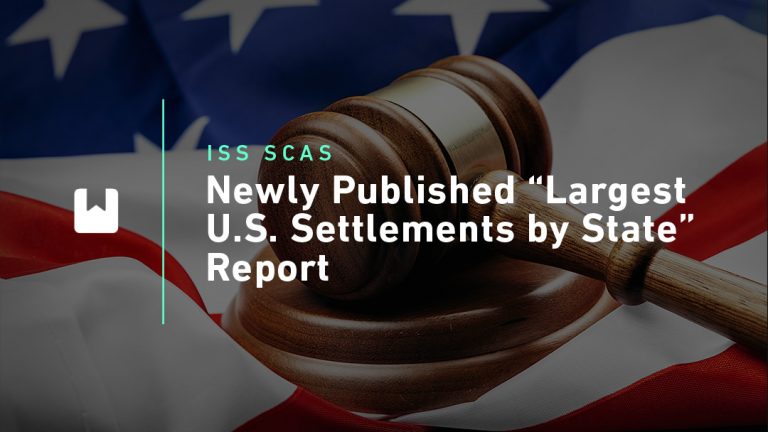
IOSCO
International Organization of Securities Commissions Endorses New Sustainable Assurance and Reporting Standards by the International Ethics Standards Board for Accountants
The International Ethics Standards Board for Accountants (IESBA) released the Final Pronouncement for its “International Ethics Standards for Sustainability Assurance (including International Independence Standards) and Other Revisions to the Code Relating to Sustainability Assurance and Reporting” (IESSA and Related Revisions) on January 17. The IESSA and Related Revisions build upon existing IESBA Codes of Ethics to make them “fit-for-purpose for sustainability reporting.”
The IESBA standards are designed to address the difficulties faced by providers of assurance on sustainability information, which can sometimes rely on “immature data and systems” as well as “forward-looking” information. The IESSA and Related Revisions are also designed to increase investor protections by providing awareness and guidance on how to mitigate risks related to sustainable information, including greenwashing risk and non-compliance with relevant laws and regulations. The IESBA’s IESSA and Related Revisions also include a newly developed Code of Ethics focused on “Using the Work of an External Expert,” which is designed to help accountants and sustainability assurance practitioners evaluate the competence, capabilities, and objectivity of an external expert when considering whether and how to utilize their expertise.
The International Organization of Securities Commissions (IOSCO) endorsed the IESSA and Related Revisions on January 17. IOSCO encouraged the IESBA to continue its plan “to develop implementation support materials and other capacity-building efforts” for the new standards and encouraged global jurisdictions to develop assurance frameworks for sustainable information that is aligned with the IESSA and Related Revisions.
TNFD
Bank of China Joins the Taskforce on Nature-related Financial Disclosures
The Taskforce on Nature-related Financial Disclosures (TNFD) welcomed the Bank of China to the Taskforce on January 13 as part of the TNFD’s efforts to better integrate its work into the Chinese market. The Bank of China is the first Chinese financial institution to join the Taskforce and will provide input and recommendations for TNFD guidance, data projects, and market engagement efforts. The Bank of China will collaborate with the TNFD to deepen engagement with Chinese corporations and financial institutions on how to “assess and integrate nature-related considerations into financial and corporate decision making.” In parallel, the TNFD launched “new TNFD Consultation Groups in China,” which will be coordinated by the Institute of Finance and Sustainability (IFS) in the Chinese Mainland and the Hong Kong Green Finance Association (HKGFA) and Business Environment Council (BEC) in Hong Kong.
GRI
Global Reporting Initiative Publishes Overview of Recently Completed and Upcoming Projects
The Global Reporting Initiative (GRI) released an overview document on January 24 covering its recently published, and in-development, tools and resources to support corporate sustainability reporting. In 2025, the GRI is expected to publish new guidance and mapping documents to support companies in reporting against both the GRI Standards and the European Sustainability Reporting Standards (ESRS); to continue to develop a GRI software and tools licensing program; to publish new Climate Change and Energy Topic Standards; and to develop new “learning and knowledge-sharing opportunities” on new GRI standards.
GRI and Africa Securities Exchange Association Collaborate on Integrating ESG Principles into African Capital Markets
The Africa Securities Exchange Association (ASEA) and GRI announced a new partnership on January 22 to promote GRI-aligned sustainability disclosure practices in capital markets across Africa. As part of the new partnership, GRI will collaborate with local listed companies, exchanges, and market stakeholders to host capacity-building training workshops, develop GRI-aligned ESG reporting guidelines, and adapt international sustainability frameworks to local markets. GRI has already engaged with several stock exchanges in the region to develop ESG reporting standards: the Botswana Stock Exchange (BSE) presented its BSE Sustainability Disclosure Guidance at a two-day sustainability and ESG stakeholder engagement event held with GRI; the Rwanda Stock Exchange (RSE) worked with GRI to launch its ESG Reporting Guidelines in December 2024; and the Egyptian Exchange (EGX) and the Casablanca Stock Exchange (CSE) contributed to panels hosted by GRI at the 2024 ASEA Conference that focused on integrating ESG principles in African capital markets.
FSB
Financial Stability Board Publishes Report on the Relevance of Climate Transition Plans for Financial Stability
The Financial Stability Board (FSB) published its final report on “The Relevance of Transition Plans for Financial Stability” on January 14. The report concluded that transition plans “can help address climate-related risks to financial stability” by facilitating firms’ forward-looking climate-related risk management and strategy setting, addressing information gaps for investors so they can make better informed decisions, and supporting “authorities’ macro-monitoring of transition and physical risks both in the financial system and the real economy.” The report cautions, however, that there are a limited number of firms providing transition plans, inconsistencies in the coverage and quality of key risk metrics across firms, and issues with the availability of certain data points. The FSB warns that such issues limit the usefulness of transition plans for financial stability assessments. The FSB report recommends “continued efforts towards standardization and broader adoption of transition plans” to increase transition plans’ effectiveness in financial stability assessments.

Malaysia
Securities Commission Malaysia Publishes Simplified Guidance to Corporate Board of Directors on How to Improve Sustainability Reporting
The Securities Commission Malaysia (SC) released “Navigating the Transition: A Guide for Boards” on January 20 to support companies’ boards of directors in adopting the National Sustainability Reporting Framework (NSRF). The NSRF, launched in September 2024, mandates reporting against the International Financial Reporting Standards (IFRS) S1 and S2 standards for all issuers listed on Bursa Malaysia’s Main and ACE Markets, as well as non-listed companies with annual revenues of, or above, RM2 billion; the NSRF mandates reporting using a phased implementation timeline.
Per the release, the SC board guidance “provides board of directors with simplified and actionable steps on key areas such as governance, sustainability data boundaries, financial impact assessments, and integration with enterprise risk management” to support companies in complying with their NSRF requirements. Malaysia’s Advisory Committee on Sustainability Reporting (ACSR) has developed several training programs and interoperability modules to support corporations with their NSRF disclosure requirements.
Bursa Malaysia Announces Addition of Renewable Energy Subsector Classification for Public Listed Companies
Bursa Malaysia announced the addition of a new subsector to its Energy and Utilities sector classifications on January 13, which will allow Public Listed Companies (PLCs) to classify as Renewable Energy (RE) companies. Bursa Malaysia added the RE subsector to “empower investors to make more informed decisions by facilitating a deeper analysis of the growth potential and challenges facing RE companies.” The RE subsector is designed to increase visibility for renewable energy companies and attract investment from investors focused on “sustainable and environmentally-friendly initiatives.” Per the release, increased investment would strengthen RE companies’ market position and valuation, as well as their ability to scale operations and innovate, thereby “contributing to long-term national economic growth and a more sustainable energy future.”
Malaysian Joint Committee on Climate Change Announces Action Plan for 2025
The 14th Joint Committee on Climate Change (JC3) met on January 22 to discuss the integration of ESG factors into the Malaysian financial system and outline an action plan for 2025. JC3 praised the growing success of ESG finance in the Malaysian market, noting the increased availability of green finance solutions, such as for sustainable supply chain financing; green capex financing for SMEs; the green export technology financing programme; and the RM13.3 billion raised in investments under the Sustainable Finance Action Plan.
As part of its action plan, JC3 will work to establish a national Climate Finance Innovation Lab (CFIL) in the first half of 2025. CFIL is designed to increase the flow of private, public, and blended investment into green and transition activities. To support SMEs in reliably meeting the demand for GHG emissions disclosure, JC3 has committed to working with ESG certification providers and banks in 2025 to ensure that SMEs have access to simplified data certification and affordable disclosure solutions. JC3 will also host a 2025 SME-focused conference “to discuss a range of issues and opportunities relevant to the sustainable growth and development of SMEs.” Lastly, JC3 will design new sector-based climate finance solutions that are aligned with the National Energy Transition Roadmap (NER) and New Industrial Masterplan (NIMP).
Korea
Financial Services Commission Presents Annual Work Plan for 2025
The Korean Financial Services Commission (FSC) presented its annual work plan for 2025 on January 8 at a joint session for Korean economic ministries. The FSC announced that it will focus on promoting market stabilization through three key goals: providing support and stability to the real economy, “facilitating a recovery in people’s livelihoods,” and promoting innovation in the Korean financial industry. As part of its efforts to promote corporate and financial services innovation, the FSC will continue to promote policy related to the Korea Corporate Value-up Program (for more information on the Corporate Value-up Program, see June Newsletter). The FSC work plan proposes tax incentives for companies compliant with the value-up program, as well as “strengthening shareholder protection in corporate mergers and split-off IPOS, and introducing a mandatory bid rule in corporate mergers and acquisitions.”
Australia
Australian Treasury Opens Consultation on Creating Singular Regulatory Body to Set Accounting, Sustainability, and Assurance Standards
The Australian Treasury opened a consultation on January 23 seeking feedback on a proposed regulatory body that would combine the Australian Accounting Standards Board (AASB), Auditing and Assurance Standards Board (AASB), and Financial Reporting Council (FRC). The Consultation Paper on “Positioning Australia’s Financial Reporting System for the Future” outlines the proposed parameters of the new regulatory body. The Australian Government’s stated goal of a new, more flexible and adaptable regulatory agency stems from “recent efforts to develop sustainability and climate-related financial disclosure standards in Australia.” The Australian Treasury’s proposed changes include the creation of a “dedicated technical committee” to facilitate sustainability-reporting standard setting in Australia. The Australian Treasury’s consultation on the new regulatory body is open until February 21.
Australian Securities and Investments Commission and Australian Prudential Regulatory Authority Host Superannuation CEO Roundtable to Discuss Climate Risk Reporting
The Australian Securities and Investments Commission (ASIC) and the Australian Prudential Regulatory Authority (APRA) published on January 20 their notes on two Superannuation CEO Roundtables held in November and December 2024 on the importance of climate risk reporting and the implementation of the Australian Sustainability Reporting Standards (ASRS). APRA, ASIC, and the CEOs agreed on the need for internationally interoperable climate risk disclosure standards with standardized metrics, methods, and scenario analysis. The CEOs outlined current challenges related to data availability, including Superannuation funds’ ongoing reliance on third-party data providers, and the need for regulators to continue providing guidance and support to industry bodies. APRA, ASIC, and the Superannuation CEOs also promised continued collaboration to assess nature risk as a developing regulatory topic.

EU
European Commission Seeks Public Feedback on Net-Zero Industry Act
The European Commission (the Commission) opened a consultation on January 27 covering secondary legislation on the implementation of the Net-Zero Industry Act (NZIA). The NZIA is designed to increase investment into the clean tech sector throughout the European Union. The secondary legislation will help identify which projects qualify for the NZIA’s permitting process and “net-zero strategic project” status by listing “components of the key clean technologies that are automatically supported by the regulation” and setting uniform assessment criteria across EU Member States. The secondary legislation is also designed to support the NZIA’s aim of increasing domestic clean energy production by listing qualifying supply components that must be diversified, governing renewable energy auctions, and defining non-price criteria for renewable energy.
French Government Sends Letter to European Commission in Support of Omnibus Bill Simplifying Sustainability-Related Disclosures in the EU
The French Government sent a non-public letter to the European Commission on January 20 requesting that the Commission take several measures to simplify the EU’s regulatory regime and reduce the compliance burden of EU companies. The French letter calls for an immediate “regulatory pause” on any unfinished rulemaking, a review of recently passed legislation impacting European competitiveness, administrative relief for SMEs based on a new mid-cap category, and legislation-specific modifications and simplifications. The French letter specifically requests that the Commission indefinitely postpone the implementation of the Corporate Sustainability Due Diligence Directive (CSDDD) until sufficient regulatory burden reductions are introduced; reduce significant reporting burdens under CSRD, including downstream compliance burdens of SMEs; and review the effectiveness of the European Green Taxonomy, specifically the green asset ratio for credit institutions.
European Commission Publishes Competitiveness Compass to Guide Regulatory Agenda
The Commission presented its new “Competitiveness Compass” on January 28 designed to provide a strategic framework for aligning EU regulation with ongoing efforts to improve European competitiveness. The president of the Commission, Ursula von der Leyen, had promised the release of a Competitiveness Compass as the Commission’s first major initiative under its new mandate. The Compass outlines a “joint roadmap for decarbonization and competitiveness,” including an upcoming “Clean Industrial Deal” to encourage the production and promotion of clean tech, circular business models, and less energy-intensive industries; the Compass also envisions transition paths for carbon-intensive industries. The Compass lauds the Commission’s upcoming Omnibus proposal as an “enabler” of simplification of sustainability reporting related to CSRD, CSDDD, and the EU Taxonomy. The Compass sets burden reduction targets for the Omnibus proposal: a 25% burden reduction for all EU firms and a 35% reduction for EU SMEs.
European Banking Authority Publishes Draft Guidelines on ESG Risk Management and Scenario Analysis
The European Banking Authority (EBA) published final “Guidelines on the management of Environmental, Social and Governance (ESG) risks” on January 8. The Guidelines specify internal ESG risk-assessment requirements for institutions, in line with the EU’s Capital Requirements Directive (CRD6). The Guidelines require institutions to integrate ESG risks into their risk management frameworks covering traditional risk categories; they also require specific risk mitigation plans for ESG factors, including through short-, medium-, and long-term transition planning. EBA also provides specific guidelines for identifying pertinent ESG risks, conducting materiality assessments on ESG risks, and implementing minimum standards in ESG risk management. Specifically, institutions must monitor and assess financial risks stemming from different scenarios, such as the adjustment process of achieving climate neutrality in the EU by 2050.
On January 16, the EBA opened a consultation on draft guidelines designed to support institutions in implementing the Guidelines. The draft guidelines cover expectations for institutions as they utilize forward-looking scenario analyses to test the negative impact of ESG risks on the resilience of their financial and business model. The draft guidelines set out the EBA’s expectations for institutions to assess their short-, medium-, and long-term financial resilience, capital, and liquidity against ESG-related risks or shocks. The guidelines start with risk analysis for plausible, climate-related scenarios, including the business impact of achieving climate neutrality in the EU by 2050. The EBA consultation is open until April 16.
European Financial Reporting Advisory Group Publishes Mapping Document on Overlapping Requirements of ESRS and the EU Eco-Management and Audit Scheme
The Secretariat of the European Financial Reporting Advisory Group (EFRAG) published a paper on January 16 covering the “synergies” between the ESRS standards and the EU Eco-Management and Audit Scheme (EMAS). The mapping paper demonstrates that existing disclosures under the EMAS environmental statement can be used to comply with parts of the new ESRS requirements. The document notes overlap between the two frameworks, as well as provides guidance for the 4,100 companies already using EMAS on how to leverage their existing sustainability management systems to “meaningfully complement and support environmental reporting under the ESRS by providing useful and reliable data and a framework to monitor progress in meeting environmental targets.” EFRAG intends for the mapping document to reduce corporate disclosure of duplicative information and reduce the regulatory burden of corporations already disclosing under the EMAS regime.
UK
Financial Reporting Council Releases First Review of Mandatory Climate-Related Financial Disclosure Reporting by AIM and Large Private Companies
The UK Financial Reporting Council (FRC) published a thematic review on January 21 analyzing Climate-related Financial Disclosures (CFD) made by AIM and large private companies. The new CFD reporting requirements apply to companies that have more than 500 employees and are traded, banking, insurance, or AIM companies; or are private companies or LLPs with turnover exceeding £500 million. The FRC review found that companies “have endeavored to meet the CFD requirements” but reporting was inconsistent. The FRC report outlines “examples of good practice and identifies areas where preparers can provide more consistent, coherent and concise disclosures.” The FRC report also emphasizes that, given this is the first reporting cycle with mandatory CFD reporting for AIM and large private companies, they expect CFD reporting to consistently improve over time.

US
Federal Reserve Board and Federal Deposit Insurance Corporation Withdraw from Network for Greening the Financial System
The U.S. Federal Reserve Board announced on January 17 that it had withdrawn from the Network of Central Banks and Supervisors for Greening the Financial System (NGFS). Per the release, the Federal Reserve Board left the organization due to the NGFS’ broadening scope, which covers “a wider range of issues that are outside of the Board’s statutory mandate.” The Federal Deposit Insurance Corporation (FDIC) also withdrew from NGFS on January 21. The FDIC stated that the NGFS’ work was “not within the FDIC’s authorities and mandate.”
Securities and Exchange Commission Commissioner Delivers Personal Remarks on Ensuring that Capital Markets do not Become a Playground for Politics of Any Stripe
Hester Peirce, a Commissioner of the U.S. Securities and Exchanges Commission (SEC), delivered a speech to the Northwestern Securities Law Institute on January 27 on her views regarding seven potential steps towards “more level, predictable terrain” for public companies. Commissioner Peirce stated the first step on this path is to recognize that “both public companies and the SEC have limited missions”: companies have “a singular focus on building corporate value for shareholders” and one of the pillars of SEC’s mission is to ensure that “investors have the information they need to channel funds to the companies that can put that money to the best use by delivering the products and services people demand.”
Commissioner Peirce suggested in her speech that the “best course” is to “retreat” to where “materiality from the perspective of the reasonable investor” is the disclosure standard. Peirce also stated that the SEC should “re-examine the ownership thresholds in Rule 14a-8,” governing shareholder proposals. She described the 2022 SEC rule requiring asset managers to report on their proxy votes along SEC-defined categories as both “enabling fund shareholders to monitor fund voting” and making “asset managers sitting ducks for pressure campaigns from social and political activists and scrutiny by ESG rating providers.” Commissioner Peirce also suggested that the SEC “refrain” from using enforcement actions to “override managerial decision-making” and that the SEC’s Division of Corporation Finance and Office of the Chief Accountant “re-double efforts” to provide guidance to companies and encourage expert staff to engage with public companies and their lawyers and accountants on new and existing rules.
Brazil
President Luiz Inácio Lula da Silva Signs Tax Reform Bill to Promote Sustainability and Brazil’s Green Transition
Brazil’s President, Luiz Inácio Lula da Silva, signed into law a Tax Reform Bill on January 16 which, among other goals, is designed to promote sustainability and the green economy. The Tax Bill was constructed in line with the Ecological Transformation Plan of the Ministério da Fazenda, Brazil’s Ministry of Finance. The Tax Reform Bill includes several environmentally focused provisions, including the “creation of the Selective Tax (IS), which is levied on products and processes that are harmful to the environment or public health; tax incentives for biofuels, with the aim of reducing carbon emissions; incentives for the circular economy, such as the granting of presumed credits to companies that acquire recyclable materials from individuals or waste picker cooperatives; [and a] 60% reduction in the standard rate for forest products, including environmental services, ensuring economic incentives for the regeneration of forests and other biomes.”
By:
Noam Cherki, Associate, Regulatory Affairs & Public Policy, ISS STOXX
Hugo Gallagher, Senior Associate, Regulatory Affairs & Public Policy, ISS STOXX
Karina Karakulova, Director of Regulatory Affairs & Public Policy, ISS STOXX




